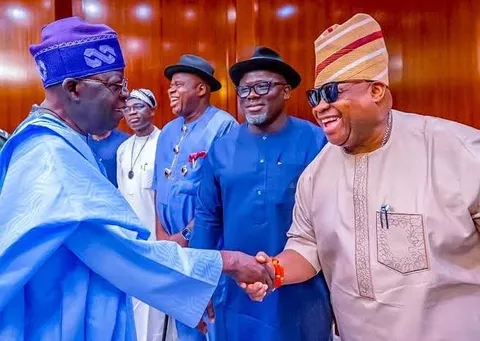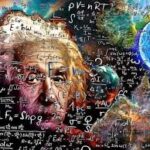50 Government Questions and Answers for Senior Secondary School

¤ōś Basic Concepts of Government
- Q: What is government?
A: Government is the institution through which the will of the state is formulated, expressed, and carried out. - Q: What are the three arms of government?
A: The Executive, Legislature, and Judiciary. - Q: What is sovereignty?
A: Sovereignty is the supreme power of a state to make and enforce laws within its territory without external interference. - Q: What is a constitution?
A: A constitution is a body of fundamental principles and rules that govern a country. - Q: What is democracy?
A: Democracy is a system of government where power is vested in the people, either directly or through elected representatives. - Q: What is dictatorship?
A: Dictatorship is a system of government where power is concentrated in the hands of one person or a small group. - Q: What is the rule of law?
A: Rule of law is the principle that all individuals and institutions are subject to and accountable to the law. - Q: What is political culture?
A: Political culture refers to the attitudes, beliefs, and values that influence political behavior in a society. - Q: What is a unitary system of government?
A: A unitary system is one in which all powers are centralized in a single national government. - Q: What is federalism?
A: Federalism is a system where power is shared between a central government and several subnational units (states).
¤Åø’ĖÅ Constitution and Constitutional Development
- Q: What was NigeriaŌĆÖs first constitution?
A: The Clifford Constitution of 1922. - Q: Name two features of the 1946 Richards Constitution.
A: Regionalism and introduction of regional legislatures. - Q: What was the major feature of the 1954 Lyttleton Constitution?
A: It introduced true federalism in Nigeria. - Q: What constitution made Nigeria a republic?
A: The 1963 Republican Constitution. - Q: Which constitution introduced the presidential system in Nigeria?
A: The 1979 Constitution. - Q: What is a written constitution?
A: A written constitution is one that is codified and documented in a single formal document. - Q: What is an unwritten constitution?
A: An unwritten constitution is based on customs, conventions, and judicial decisions rather than a single document. - Q: What is constitutionalism?
A: Constitutionalism is the belief in limiting government power through a constitution. - Q: What are fundamental human rights?
A: They are basic rights and freedoms guaranteed to individuals by the constitution. - Q: Mention two examples of fundamental rights in Nigeria.
A: Right to life and right to freedom of expression.
¤Ś│’ĖÅ Political Parties and Elections
- Q: What is a political party?
A: A political party is an organized group of people who seek to gain political power through elections. - Q: Mention two political parties in NigeriaŌĆÖs First Republic.
A: Action Group (AG) and National Council of Nigerian Citizens (NCNC). - Q: What is an election?
A: An election is a formal process of selecting leaders through voting. - Q: What is franchise?
A: Franchise is the right to vote in public elections. - Q: What is adult suffrage?
A: It is the right of all adult citizens to vote regardless of race, gender, or wealth. - Q: What is voter apathy?
A: It refers to a lack of interest or unwillingness of citizens to participate in elections. - Q: What is an electoral commission?
A: It is a body responsible for conducting and overseeing elections. - Q: What is the name of NigeriaŌĆÖs electoral body?
A: Independent National Electoral Commission (INEC). - Q: What is rigging?
A: Rigging is the manipulation of the electoral process to produce a desired result. - Q: What is a manifesto?
A: A manifesto is a public declaration of policies and programs proposed by a political party.
ŌÜ¢’ĖÅ Arms of Government
- Q: What is the main function of the legislature?
A: Law making. - Q: What is the main function of the executive?
A: Implementation of laws and governance. - Q: What is the main function of the judiciary?
A: Interpretation of laws and administration of justice. - Q: Who heads the executive arm in Nigeria?
A: The President. - Q: What is separation of powers?
A: The division of government powers among the three branches to prevent abuse. - Q: Who is the current Chief Justice of Nigeria?
A: [Update based on current information ŌĆō as of 2025, this may vary.] - Q: What is impeachment?
A: The process of removing a public official from office for misconduct. - Q: What is bicameral legislature?
A: A legislature that has two chambers or houses, such as the Senate and House of Representatives. - Q: What is judicial independence?
A: It means the judiciary is free from control by the executive or legislature. - Q: What is checks and balances?
A: A system where each branch of government can limit the powers of the others.
¤īŹ International Relations and NigeriaŌĆÖs Foreign Policy
- Q: What is foreign policy?
A: A government’s strategy in dealing with other nations. - Q: What is the guiding principle of NigeriaŌĆÖs foreign policy?
A: Africa as the center-piece. - Q: Name two international organizations Nigeria belongs to.
A: United Nations (UN) and African Union (AU). - Q: What does ECOWAS stand for?
A: Economic Community of West African States. - Q: When was Nigeria admitted into the United Nations?
A: 1960.
¤ć│¤ć¼ Nigerian Government and Political Development
- Q: Who was Nigeria’s first president?
A: Dr. Nnamdi Azikiwe. - Q: When did Nigeria become a republic?
A: 1963. - Q: What type of government does Nigeria operate today?
A: Presidential and Federal system. - Q: Name two major political parties in NigeriaŌĆÖs Fourth Republic.
A: All Progressives Congress (APC) and PeopleŌĆÖs Democratic Party (PDP). - Q: What is military rule?
A: A government controlled by the armed forces, often following a coup d’├®tat.
┬Ā
¤Æö ŌĆ£She said she loved me. And for fifty-two years, I believed her.ŌĆØ ¤Æö
ŌĆ£Beat the Pressure: A Comprehensive Guide to Lowering Blood Pressure Naturally.ŌĆØ
Buy book from Gumroad or Paystack
Buy The Book "The Longest Lie: A HusbandŌĆÖs Journey Through Love, Betrayal, and Redemption" From Gumroad
┬Ā






